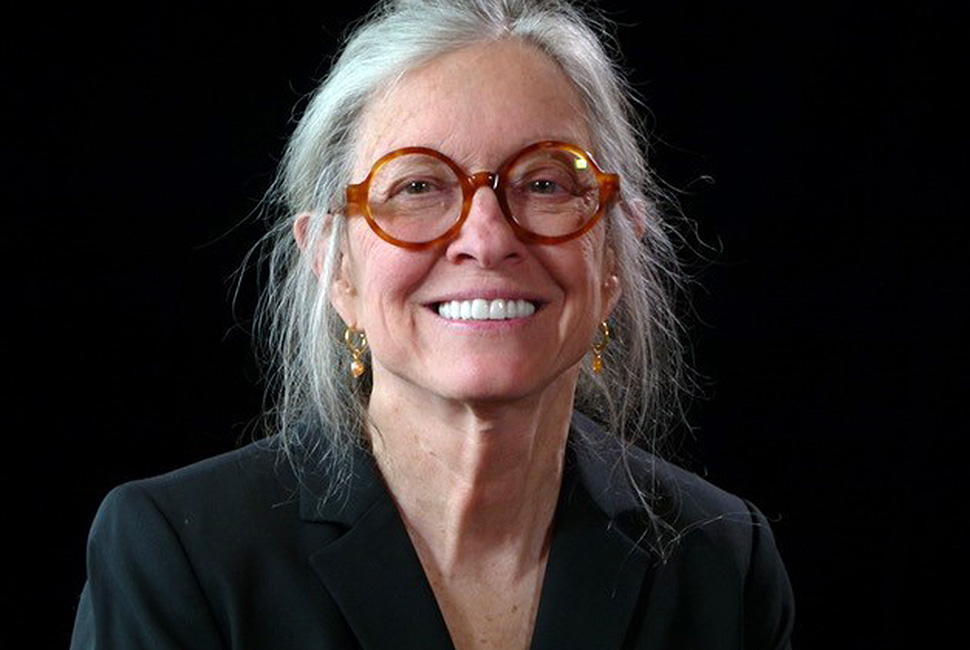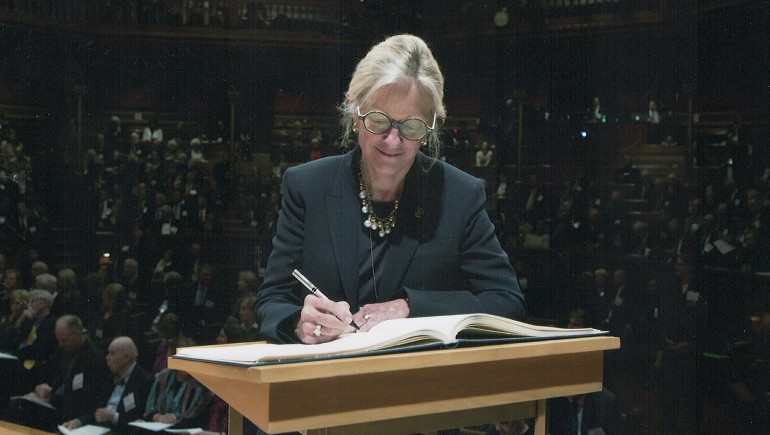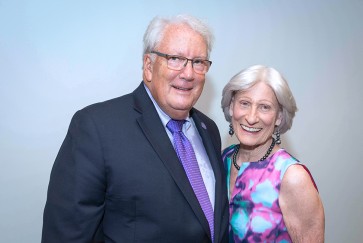Ann Lurie, well-known Chicago and global philanthropist whose name graces some of Chicago’s and the Midwest’s most vital academic, cultural, social service and health care institutions, died today due to complications from a recent illness, a spokesperson for her family said. She was 79.
Her many generous gifts benefited Northwestern University, Ann & Robert H. Lurie Children’s Hospital of Chicago, the University of Michigan and numerous health and education projects globally. She was recognized as one of the nation’s leading philanthropists and known as a “hands-on person” who was actively engaged in the projects she supported.
Born and raised in Florida, the only child of a single mother, Lurie earned a nursing degree from the University of Florida. After graduation, she worked in public health before relocating to Chicago in 1973, where she worked as a pediatric intensive care nurse at Children’s Memorial Hospital.
She met her late husband, commercial real estate titan Robert H. Lurie, business partner of the late Sam Zell, in the laundry room of her apartment building. Following Robert Lurie’s death in 1990, Lurie devoted herself to raising their six children and distinguishing herself as a committed benefactor to many causes in health care, education, social services and the arts. She was president of Lurie Investments and president and treasurer of the Ann and Robert H. Lurie Foundation.
In 2014, Lurie married filmmaker Mark Muheim, in Jackson, Wyoming, where they made their home.
Lurie was a Northwestern University life trustee who gave more than $60 million to the University over the years. Her connection with Northwestern began when her late husband, Robert, was undergoing treatment at the University’s cancer center.
In appreciation of the exceptional care Robert received, and driven by the belief in Northwestern’s future, the Luries went on to endow the Robert H. Lurie Comprehensive Cancer Center of Northwestern University as well as the state-of-the-art Robert H. Lurie Medical Research Center, a 12-story building with lecture auditoriums and laboratories that accommodates more than 1,000 researchers, technicians, postdoctoral students and lab assistants.
“Ann had a tremendous impact on Northwestern through her generosity, her leadership and her service,” said Northwestern President Michael Schill. “As a trustee, she helped propel the University and our medical research to ever greater heights. She touched so many lives, both at Northwestern and well beyond. My deepest condolences to her family and to so many friends who loved her.”
Lurie established two professorships (in breast cancer research and oncology) at Northwestern’s Feinberg School of Medicine. In 2021, Dr. Eric G. Neilson, vice president for Medical Affairs and Lewis Landsberg Dean at Feinberg, established the Ann Lurie Professorship in Oncology, to honor her tremendous generosity to Lurie Cancer Center and patients with cancer and their families worldwide.
“Ann Lurie was one of those truly remarkable philanthropists,” Neilson said. “She knew what Mary Lasker (an American health activist and philanthropist) before her also knew, that ‘people want the answer to many diseases, and they’re not going to get it without spending money, because money is frozen energy that unfreezes itself when you pay people to work’.
“Ann was extraordinarily generous, a great friend to the medical school, and the academic medical center writ large,” Neilson said. “Hardly a day went by when I didn’t come across something wonderful she had done for someone at some time. Our deepest sympathy goes out to her husband Mark and the children in her large family.”
Lurie made a $100 million gift to help build the Ann & Robert H. Lurie Children’s Hospital of Chicago (formerly Children’s Memorial Hospital.) It was the largest philanthropic commitment ever received in the hospital’s more than 125-year history. She also funded a professorship in cancer cell biology at the hospital.



